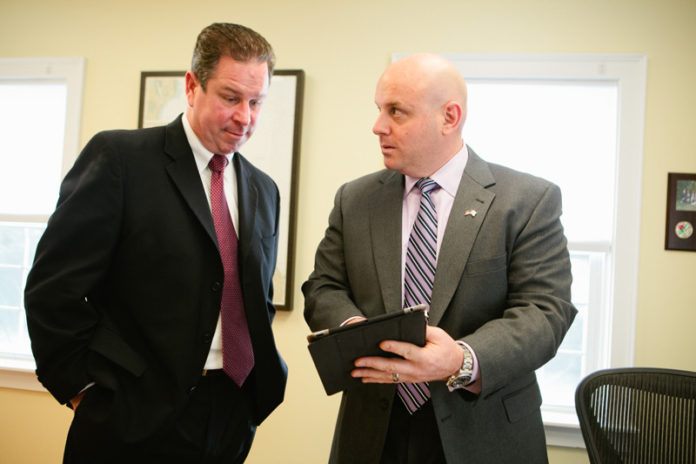
In 2007, Martin King started project-management-services firm Gurnet Consulting from his kitchen table.
He had recently left a steady, full-time job to go out on his own and rebrand his former IT-service company, Gurnet Group, into a business that focused on the consulting and strategy aspects of technology services.
And then the economy imploded.
King soon found himself at the helm of a business focused on project management in a time when project budgets were being slashed.
“Call me in two years,” potential large-market clients told him. Their project portfolios had decreased and, internally, they already had more project managers than projects to manage.
So, King started to reach out to some midmarket contacts. These companies told him that they had some projects that were currently underperforming. Could he help?
“That’s where the rubber really hit the road for us, in that new market, and that high-touch relationship and referral business,” King said. “We really got some great traction through 2008 and 2009.”
And since then, most of his business has come from referrals. The company has been able to deliver with close to a 98 percent success rate, he says.
“It’s been a heck of a ride, and it’s been a lot of fun,” King said. “What really gets me excited is not only the great work we’re doing for our clients, but it’s how were building the business [and] really breaking down traditional barriers for the use of technologies … and social media tools.”
When King first explored starting Gurnet Consulting several years ago, he thought about a study that had been done in the early 2000s, which found that more than half of all IT projects either fail completely or fail to meet original expectations.
“That’s not a good track record,” he said.
New devices and products can sometimes make it easy to gloss over functional considerations, such as the impact to the organization once it’s in place, the resources and organization resources needed for implementation, and the right project management, software development or service-delivery methodologies.
“There are a lot of folks who can go through a checklist and say ‘OK, we have our project charter done and we set up a risk register and we have a to-do list … but they go through the checklist and, well, it’s just an exercise,” he added.
For Gurnet, King said, it’s about coming to the table with knowledge of how projects deploy successfully, and having upfront and frank conversations with clients in order to develop a mutual understanding of, and a strategy for, the technologies and best practices.
“So it isn’t technology for technology sake, it’s technology to achieve a result for the business,” he said.
Gurnet’s philosophy also draws on some of the things that King picked up when he was employed as the director of delivery at Ciber Inc.
At the time, the company was a billion-dollar consultancy with global delivery capabilities, and it was interested in building up the services aspect of its business.
“They were doing a lot of strategic staffing, but in terms of leveraging those global-delivery capabilities that Ciber had, they wanted to kind of build a business model around that …” he said.
In this model, King said clients could “touch and feel” those who were responsible for the management, delivery and leadership of the projects. However, the technical and functional aspects of these types of projects could be drawn, literally, from around the world. Essentially, he said, it boiled down to “local accountability, global delivery.”
Gurnet currently employs a similar model, keeping a local presence for the consulting side of things, but working with partners to deliver technical services. King has also put in place a similar strategy by investing heavily in social, mobile and cloud-based technologies that keep employees in constant contact and allow access to a knowledge base from anywhere and at anytime.
This is especially helpful, as most of Gurnet’s employees work remotely either from home or from client sites.
“The world’s changed and it’s all about mobility,” King said. •
COMPANY PROFILE
Gurnet Consulting
OWNER: Martin J. King, founder and CEO
TYPE OF BUSINESS: Technology consultant
LOCATION: East Providence
EMPLOYEES: 30
YEAR ESTABLISHED: 2007
ANNUAL SALES: $3.5 million












